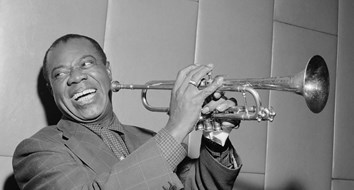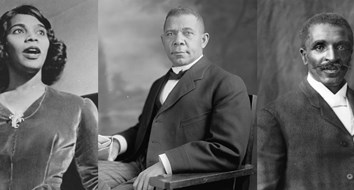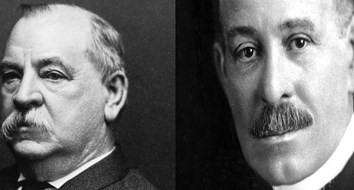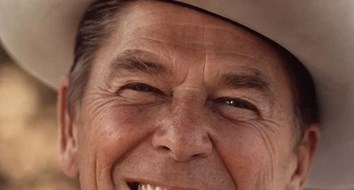Download:
Mark Twain once said that the game of golf was nothing more than “a good walk spoiled.” But to avid golfers, such impertinence obscures a cardinal truth: The sport is infinitely complex and not for everybody.
Golf requires patience, concentration, and forbearance. Distractions must be ignored or compensated for by careful planning. A serious player must learn from his mistakes and be earnest about continuous improvement. A long-term perspective is a must so that no bad day becomes a deterrent to the next match. Golf etiquette demands a healthy respect for the rights of others and a fealty to the rules. Honesty is not only the best policy in the game, it is the only policy for any true gentleman of golf. Percy Boomer is reputed to have said that if you want to hide your true character, don’t play golf.
And while among friends one mulligan per round may be acceptable, it is unforgivable to ignore repeated failure and pass off your score as far better than it truly is.
From these unassailable facts, one certain conclusion can be derived: Golf is no legitimate concern of government. Former California Governor George Deukmejian put it well when he observed that “The difference between golf and government is that in golf you can’t improve your lie.”
Few Americans would regard golf as a “core” government function, but officials in one municipality apparently think it’s important enough to consider swiping a private course and making it their city’s very own. Earlier this year it was revealed that the Village of North Hills on New York ‘s Long Island would like to use eminent domain to condemn and seize the Deepdale Golf Club and its 18-hole course, and then convert it to city-owned links for village residents only.
Deepdale is not a cow pasture. It’s one of the finest courses in the nation, a playground for the rich and famous. Comedian Bob Hope regarded it as one of his favorites. North Hills is not even claiming it’s “blighted”—a ploy often used by municipalities to confiscate attractive properties so they can hand them over to someone else who might pay higher taxes than the previous owners. No, the bureaucrats and political empire-builders who run North Hills just want to be in the golf business and would rather not get their hands dirty by investing their own money to build or buy a course. In fact, if the seizure takes place, a private entity will go off the tax rolls and become a tax-eating public one. The compassionate, public-spirited mayor pushing the scheme says, “I only do what’s in the best interests of village residents.” (Muammar Qaddafi says that a lot too.)
I’ve always thought that if all that local governments did was keep the streets safe, the traffic moving, and the sewers flowing, they would have a full-time job on their hands. I figure that if a service can be found in the Yellow Pages, it probably doesn’t need to be done by the government. In my state of Michigan , we have 823 privately owned golf courses—an average of ten for every Michigan county. But we also have 91 courses owned by various units of government, including seven owned by state universities. How do municipalities and universities find time from the conventional duties of government to manage golf courses? Could the golf distraction help explain why their conventional duties often get done poorly at excessive expense?
When a private company sells a product at a price that somebody else thinks is “below cost,” you can bet that some self-anointed consumer advocate will cry “Dumping!” and demand the company raise the price. But where are the anti-dumpers when government golf courses do the same? One former private-course owner in my state paid $200,000 a year in property taxes while the local municipal links paid nothing and also ran $10 specials for 18 holes. That’s a big reason why the private-course owner is now a former private-course owner.
Consider the new $13.4 million county-owned Lyon Oaks Golf Course, which opened in Michigan ‘s Oakland County in 2002. Oakland is the state’s richest county, and home to no fewer than 22 of the state’s 91 government-owned golf courses. Some of the taxes paid by the 70 private courses in the county go to subsidize their government competition. Furthermore, the golf expert on my staff, Michael LaFaive (he researches and writes about golf better than he plays it), determined that Lyon Oaks received three state grants worth $2.4 million and $5.1 million more from the sale of tax-exempt government bonds. Among its various, attractive amenities is a hard-to-get, state-issued liquor license. LaFaive argues that no matter how you slice it, golf courses are one big financial sand trap for taxpayers or private competitors, or both.
So does Stephen Schmanske, economist and author of the 2004 book Golfonomics. He analyzed the record of 104 private and public golf courses in the San Francisco Bay area between 1893 and 2001. He found that municipal links actually deterred the entry of other courses and reduced the total number in the area. Schmanske recommends privatization to increase both the number of courses and the number of golfers. That strongly counters the already weak claim that government needs to play golf to increase public access to the sport.
Then there’s a story from the March 6, 2006, Ann Arbor News. Never mind that the city’s two municipal courses pay no taxes; the city has lost about a million dollars just keeping them open in spite of a 50-percent hike in fees. So far this decade, the number of rounds played has fallen by nearly half. The story says “the city would be satisfied just to break even.” City officials are having a hard time grappling with the obvious solution: Get Ann Arbor out of the golf business.
In any event, government golf makes even less sense than cents. Government shouldn’t be doing pizza, bungee-jumping, or dog-sitting either, and for all the same reason. These are not activities, profitable or not, that fall within the proper sphere of legal and moral coercion. It’s widely accepted that government can legitimately use force (cops, courts, tanks, and taxes) to keep the peace, but to whack little white balls around a field?
Gimme me a break, if not a mulligan.





